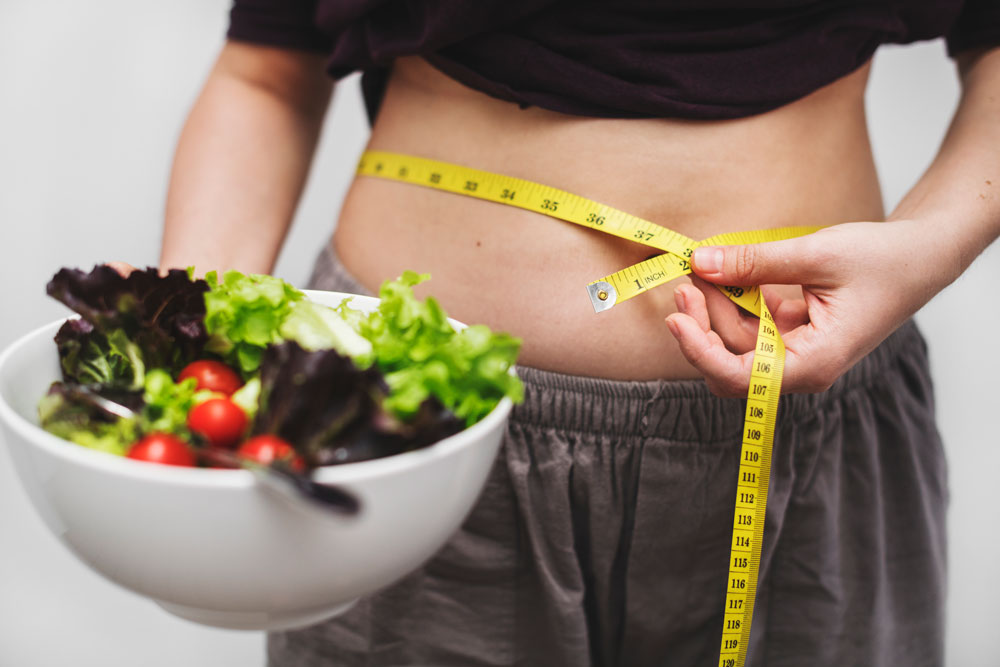Your Cart is Empty
Free shipping on Orders $79+
Free shipping on Orders $79+
Explore

The Ultimate Guide to Bloating
January 26, 2021 4 min read
Your Guide to a Flatter Belly
Does it feel like your belly has a belly?
You eat healthy, exercise regularly but the bloating sensation never goes away. One minute your stomach is fine. An hour later it feels like you’ve swallowed a big, heavy rock.
Welcome to the Bloaters Club!
Bloating can be accompanied by the following:
- Excess gas
- Lower belly bulge
- Occasional constipation, diarrhea, or number two issues
- Cravings and weight issues
With bloating, many of us are bothered by the way it makes us look.
A bloated belly looks like it destroys any progress you have made in your weight loss program.
For many others, the discomfort can really cramp their lifestyle. The good news is, belly bloat is fixable unless there is an underlying medical condition.
Read on to access the ultimate guide to bloating and how to fix it.
What is Belly Bloat?
Too much gas in your digestive tract causes bloating. Your stomach feels heavy and protrudes out. This shouldn’t be confused with distended belly seen in many women who have given birth, or belly fat that comes with weight gain.
Women are more susceptible to bloating than men. It’s because women have a longer colon that allows more gas to be trapped. Low levels of hormones like testosterone leads to looser stomach walls that don't hold everything in.
Do you have the BLOAT?
Your belly feels heavy and constantly full. Some of you may experience stomach cramps and discomfort. Belching and farting are embarrassing symptoms for others.
When you experience serious effects that disrupt your daily routine or sleep, it’s better to see a doctor.
What Causes Bloating Symptoms?
Gas, indigestion and constipation are common causes of bloating. Wrong foods, food intolerances, overeating and certain medications contribute to this condition.
Constipation
With fewer bowel movements and sluggish poop, there is a build-up of gas in the intestine. This leads to a ballooning belly which is then relieved by pooping.
Indigestion and Gas
Had too much to eat or drink? Blame it for the indigestion and swollen belly that follow. Some medications such as anti-depressants also can cause bloating.
Eating Patterns
You swallow a lot of gas when you gobble up food, drink too fast, use straws or constantly chew gum. This causes stomach discomfort and bloating. Inadequate intake of water, especially in warm weather or after strenuous workouts, can lead to dehydration. When you replenish your liquids, your body hoards it, making you bloat.
Hormones and Food Intolerances
Hormone changes during your periods, menopause, and before and after pregnancy can make you feel bloated. Food sensitivity, especially to lactose, whey, nuts and other plant foods can aggravate these symptoms.
Gut Infections and Health Conditions
Swollen stomach and related symptoms such as gas, nausea, vomiting, stomach pain and diarrhea can occur because of viral or bacterial infections. Gut sensitivity such as Irritable Bowel Syndrome, hyperthyroidism, type 2 diabetes, celiac disease, acid reflux and gastritis can spark bloating and its symptoms.
5 Effective Ways to Avoid Belly Bloat
In addition to physical activity, dietary and lifestyle changes can prevent bloating and reduce its debilitating effects..
Here are a few tricks and tips to treat this condition.
1. Drink more Greens
Everyone knows we should drink more water. Consider also drinking a belly-flatteningGreens juice that is loaded with gut-soothing nutrients like aloe, lemons, and green superfoods. These ingredients are a bloater’s best friend!
2. Cut Salt and Sugar and Turn Your Diet Around
Cut down on foods that cause bloating. Eat less dairy, salty/sugary foods, and any foods that might trigger bloating for your digestion. Consume probiotics in fermented foods to improve gut health and digestion.
Eat slowly and chew your food properly to prevent indigestion and constipation.Think a food intolerance is the reason for your bloating woes? Maintain a food diary to identify the offending ingredient.
3. Get More Fiber
Dietary fiber can help minimize belly bloat. But overloading your system with fiber-rich foods all at once can increase bloating. Anybody who has eaten too much broccoli or beans all at once knows what we’re talking about.So how do you achieve the balance?
The answer lies in fiber supplements. Organic, whole food-based fiber supplements such asPineapple Chia Cleanse contain carefully-selected soluble fibers that prevent constipation, diarrhea and the dreaded bloat. Beware of many supplements on the shelf, which contain additives and irritating forms of fiber.
A word of advice: check with your doctor before you start any supplement regimen.
4. Move Your Body
Just dancing, yoga, jogging or taking a walk for 20 minutes can significantly help your belly reduce the bloat and move thing along!
5. Try these home remedies
- Drink lemon juice or aloe vera juice (you can find abundant lemon in ourImmunity Wellness and aloe in ourGreens)
- Use digestive enzymes (included in all Smart Pressed Juice products!)
- Eat more berries and citrus fruit (you can get berries in our deliciousberry smoothie recipe)
- Ditch cow milk for plant milk
- Choosevegan protein sources over whey or milk products
Feeling overwhelmed with all these options? Our Life Bundle andEverything Bundle are a terrific system packed with all the superfoods you need to battle bloating.
Now that you’ve figured out the way to beat belly bloat, go ahead and enjoy your favorite foods, in moderation!
Should You Consult a Doctor?
Most bloating is a temporary and harmless condition. But in some cases, it can be a sign of celiac disease, cancer, tumours, peptic ulcers, stomach inflammation or gastritis.
Consult a doctor over recurring bloating symptoms such as fever, intense pain, blood in stools, swelling in the abdomen area, severe heartburn, abrupt weight loss or vomiting for more than 24 hours.
For more SMART lifestyle tips like this, visit our otherblogs at www.smartpressedjuice.com and follow us on Instagram and Twitter, or like us on Facebook. You can also visit our store to stock up on our delicious juices.
Statements made on this website have not been evaluated by the U.S. Food and Drug Administration. Information provided by this website or this company is not a substitute for direct, individual medical treatment or advice. It is the responsibility of you and your healthcare providers to make all decisions regarding your health. We recommend that you consult with your healthcare providers regarding the diagnosis and treatment of any disease or condition. Products sold on this website are not intended to diagnose, treat, cure, or prevent any disease.
{"themeColor":"#574CD5","iconColor":"#574CD5","showLogo":true,"topBottomPosition":10,"rightLeftPosition":10,"iconSize":"small","iconCustomSize":64,"position":"bottom-left"}

